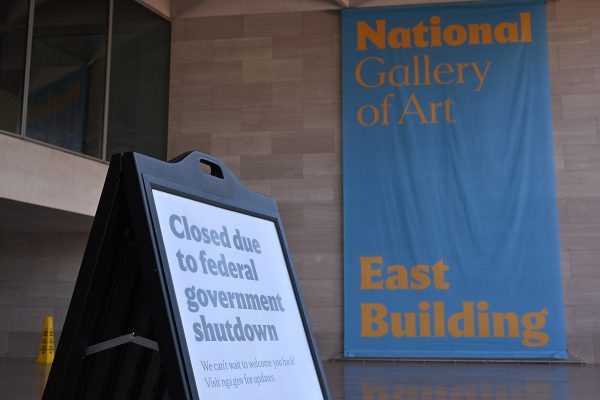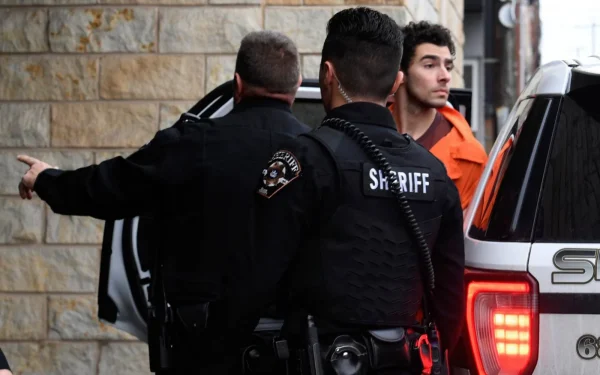Debate over the death penalty
Is the punishment ethical or a relic of the past?
Google image/Creative Commons license
American citizens remain divided on the merits of capital punishment.
The death penalty is an increasingly archaic concept, so much so that the United States is the only Western democracy that continues to use it as form of punishment.
It is a controversial topic that garners attention from around the globe and calls into question America’s moral values. The merits of the debate are perhaps most evident in two cases very much in the news: that of mass murderer Dylann Roof and Arkansas’ recent series of executions performed in rapid sequence because the state’s lethal drugs were about to expire.
Mr. Roof, 22, murdered nine churchgoers in Emanuel African Methodist Episcopal Church in Charleston, S.C., on June 17, 2015. The crime shocked the surrounding community and country alike, reaffirming the notion that no place is truly safe.
Mr. Roof was convicted of 33 federal charges, including a violation of the Hate Crime Act resulting in death, obstruction of exercise of religion, and using a firearm to commit murder in relation to a crime of violence, according to CNN.
This is the first time in American history that someone has been sentenced to death for a federal hate crime.
Arkansas executed four men last month, after the U.S. Supreme Court ruled 5-4 that the state was within its rights to execute Ledell Lee on April 20, followed by Jack Jones and Marcel Williams on April 24, and Kenneth Williams on April 26.
Arkansas’ governor, Asa Hutchinson, scheduled eight executions within 11 days. Four of those executions received stays from the Arkansas Supreme Court and will not be carried out at this time.
It raised serious questions about the judicial process and the morality of hastening executions simply because the lethal drugs required to carry them out were on the verge of expiring.
The events also brought to light the most basic question of all concerning such matters: Who, if anyone, deserves a sentence of death carried out by the state?
Mr. Roof has been widely forgiven by the families of his victims, but that does not mean his life will necessarily be spared.
So what does it all mean? Is it possible to view capital punishment in a broad manner, as a concept, or must it be explored only on a case-by-case basis? Does anybody, no matter how heinous the crime, deserve to be killed?
It is a conversation worth having. Co-editor Jyotika Vallurupalli and opinion editor Andrew Fehribach of The AMSA Voice sat down to offer opposing viewpoints.
Jyotika Vallurupalli, co-editor:
There are some facts that cannot be disputed. Mr. Roof did take the lives of nine innocent people. He did intentionally kill them in an act of racist violence. He did commit the act in a clinically sane state of mind.

Visitors made a makeshift memorial in front of the Emanuel African Methodist Episcopal Church in Charleston, S.C.
He went into a church that welcomed him with open arms and committed a hate crime. If there is a situation in which the death sentence should be applied, this would be it.
Though not at the church the day of the shooting, Sharon Risher watched every day of the trial. She lost her mother, Ethel Lance, and two of her cousins in Mr. Roof’s rampage, and told CBS News that “if this case didn’t warrant the death penalty, then I wouldn’t know what case would have.”
The severity of his punishment sets a precedent for hate crime offenders of the future.
Families like Ms. Risher’s think about the crime that took their loved ones every day. To be able to confirm that the perpetrator will never get the chance to kill again is a relief, to say the least.
Such a penalty demands careful thought and consideration, which the judge and jury gave in this case. If Mr. Roof’s crime had gone unpunished, or lightly punished, it would send the message that hate crimes such as his are taken lightly.
In a time when racial tensions are arguably higher in the United States than they have been in years, it is important to keep in mind that racism must be met with the strongest possible response.
Author Eduardo Bonilla-Silva told CNN, “The more we assume that the problem of racism is limited to the Klan, the birthers, the Tea Party or to the Republican Party, the less we understand that racial domination is a collective process and we are all in this game.”
In other words, racism is spread wide in society, affecting everyone. For some, like Mr. Roof, racism is all-consuming, causing them to act irrationally.
His actions were inexcusable, and since Mr. Roof was not deemed criminally insane, he committed the act knowingly and out of hate. It is a type of perception that is unlikely to fade with time. Keeping him alive serves no purpose.
It is also important to note that a life sentence in the United States is not always definitive.
California, for example, is granting more and more inmates parole even though their crimes were befitting of life sentences, largely because of budgetary constraints and prison overcrowding.
Are we willing to take the risk of releasing convicted murderers back into society?
One need only look to the case of Winford Stokes of Missouri for a cautionary tale. According to United Press International, Mr. Stokes was convicted on two counts of murder in 1969, for which he was ruled insane and placed in an asylum. He escaped from the asylum in 1978 and murdered again. Mr. Stokes was then executed for the third murder in 1990.
Morally, is it right to use taxpayer money to feed and house Mr. Roof for potentially the next half century and beyond?
According to the U.S. Bureau of Prisons, the average annual cost of incarceration in federal prisons in 2010 was $28,284 per inmate. Couldn’t that money be better spent on improving lives, instead of sustaining a lost one?
The death penalty should be reserved for individuals who truly and clearly deserve it. Mr. Roof obviously qualifies.
As disheartening as it is to live in a world still plagued by such outdated thoughts as racial superiority, it is even more disheartening to know that there are others out there who share views similar to Mr. Roof’s.
The United States government has shown that it will not take such actions lightly by issuing Mr. Roof the death sentence.

Arkansas Gov. Asa Hutchinson signed the death orders of eight inmates in the month of April.
Andrew Fehribach, opinion editor:
The fact remains, however, that capital punishment is unnecessarily severe and signifies that we have given up on trying to reintegrate someone into society.
The death sentence does not exist in Massachusetts. It is widely regarded–perhaps unsurprisingly, given the state’s liberal bent–to be an immoral punishment, no matter the crime.
In the case of Mr. Roof, he was tried and sentenced to death in a fair and legal trial, but the eight men being pushed toward death in Arkansas are not receiving the same fair treatment.
Rushing them to execution, at the possible expense of their rights to appeal, is nowhere near justifiable, let alone the right decision.
The decision to execute Mr. Lee quickly “denied him the opportunity to conduct DNA testing that could have proven his innocence,” attorney Nina Morrison of the Innocence Project told NPR. “While reasonable people can disagree on whether death is an appropriate form of punishment, no one should be executed when there is a possibility that person is innocent.”
This begs an obvious question: Can a government ethically take a life or is the death penalty, no matter how well reasoned, a punishment that violates basic human morality?
Everyone is deserving of a fair trial, a fair appeals process, and a fair punishment. It is no longer fair when people are sentenced to death by expiration dates.
Some argue that any death sentence is immoral, while others say that there are crimes so heinous that the only fitting sentence is death.
Returning to an earlier question, if Mr. Roof’s crime does not qualify for execution what, if anything, does?
“It may not be right to take a life but in the end it might be the only way,” according to Alexandre Joseph Belanger of Applied Social Psychology (ASP).
But justifying execution is not the same as it being the right decision. Justification only makes a decision less wrong, but alone, it does not make anything purely right.
Many members of the families of Mr. Roof’s victims have forgiven him, but there are still people who feel they need closure. Closure is not a justifiable reason to execute someone, let alone an argument that makes it right.
It is fallacious to say that a life sentence for Mr. Roof will have little effect because he won’t see “the error of his ways.” Killing him will accomplish that?
Prison is a life that Mr. Roof deserves. It is justifiable, morally and ethically right, and it could be perfect for him in terms of a lifetime of reflection and contemplation.
Yes, it will cost money to keep him in prison. Years of appeals would cost more, but that is immaterial. When a life is at stake, the decision to kill should not come down to dollars and cents.
The death sentence will never be morally right. It represents giving up on a person completely.

Jyotika is a senior, and hopes to enjoy her final year at AMSA. She thoroughly enjoys speaking and having a spirited debate, which is shown in her passion...

Andrew is a senior who has been at AMSA since the 7th grade. He spends free time, sometimes hours, listening to a variety of music, mostly classic rock....






